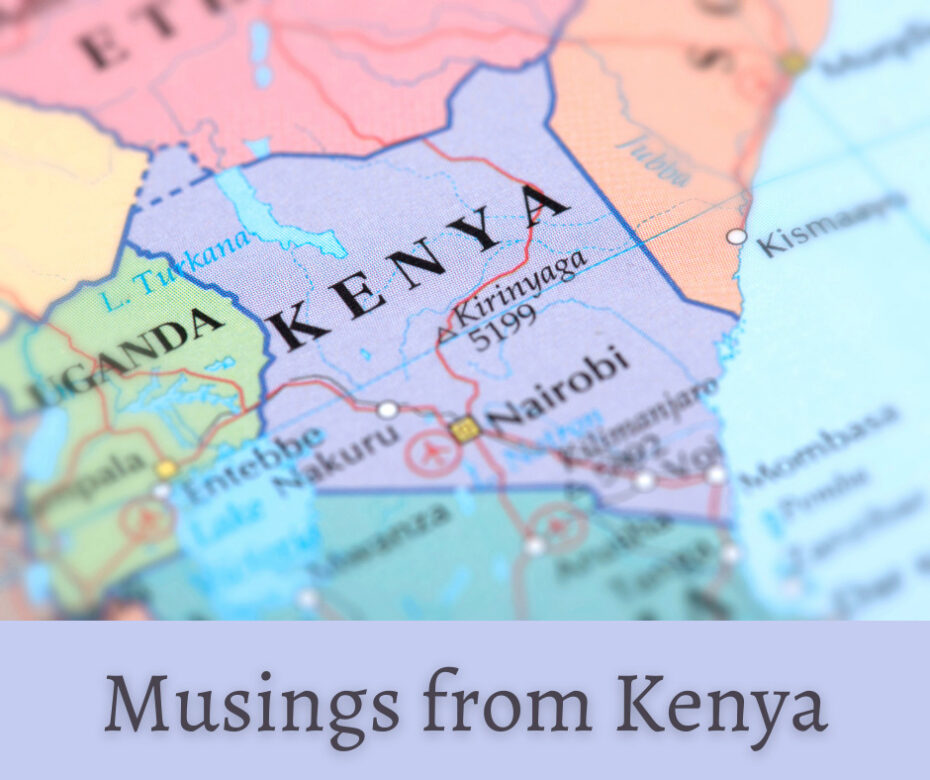Part of what I do for GES is teach in other countries. My daughter Kathryn usually accompanies me on these teaching trips. We recently returned from a couple of weeks of teaching in Kenya. There is a solid Free Grace couple from Kenya who invite us on an annual basis to come and conduct conferences for pastors and their wives.
We have done similar things in other countries, sometimes conducting classes in Bible colleges. These countries include Zambia, Nepal, Ukraine, and Costa Rica. Because of COVID, we have done work through the miracle of Zoom classes in places like South Korea and Europe.
It is always dangerous to make blanket statements based upon limited experience. Others have been doing this kind of ministry for much longer than we have. But I can make some general observations as a result of what I have seen. The reader of this blog may find them helpful in evaluating what is happening in other places around the world.
Overwhelmingly, people in churches and Bible colleges in other countries reject the doctrine of the eternal security of the believer. It is very rare to find people who have assurance that they have eternal life. The message of grace is non-existent or is rejected out of hand. The people we encounter have almost universally never had anybody defend this Biblical doctrine.
The good news is that when they hear it explained, the majority believe it. Through donations to GES, we always take literature with us on these trips and the “students” all appreciate the material and are eager to read it. They also ask LOTS of questions. I am convinced that many of these people receive eternal life during these conferences or classes, or by reading the books and tracts that are given to them. It is amazing to consider that this is the case when one realizes that many of these people are pastoring churches when they come to faith. Even though such people should not be leading churches, the fact that many are coming to faith is truly exciting.
But there is also some depressing news mixed with the good. Based solely upon my limited experience, the churches in these places do not seem to benefit from the message of grace in any significant way. Many times, pastors who say they now believe in eternal security and understand that we are eternally saved by grace point out that they cannot teach such doctrine in their churches. They believe the people will not accept it, and the pastors will be fired from their positions.
In Kenya, I am told that a pastor who is relieved of his position cannot start a new church. Only approved denominations can plant a new church, according to governmental regulations, and if the bishop fires a pastor from his position for teaching assurance or eternal security, that pastor cannot simply move down the street and start a new church, like we can in the US.
In most places I travel to, the charismatic influence on the churches is very strong. The people come to church to speak in tongues, have demons cast out, have their dreams interpreted, and to see miracles. There are reports of pastors raising the dead, turning into animals, and many claim to be modern day prophets and apostles. Associated with all of this is the basically universal belief that a church member can lose his salvation for a whole assortment of reasons. In poor countries, especially, the pastors who are exposed to grace do not have the courage to oppose such teachings. In fact, their very livelihood depends on promoting such false doctrines. For example, in Kenya, some pastors receive part of their pay by interpreting the dreams of the members of their congregation.
I often hear missionaries, and even others not involved in mission work, say that the churches in these countries are “exploding.” It is pointed out that the church in the US may be materialistic or worldly, but God is doing great things in the churches overseas. The world is a big place, and I admit that I may be ignorant of what is going on in the many places of which I have no knowledge. I can only say that when I hear such reports, I receive them with a great deal of skepticism.
I share these musings to perhaps start a conversation. I think when all of us speak of mission work, we need to discuss how to help churches become healthy in the countries in which we are involved. If we support missionaries, we need to have such conversations with them. As those in the Free Grace movement realize, the Great Commission is not telling us to simply proclaim the good news of eternal life by faith in Christ alone. We are called to make disciples. That requires that we also work to have healthy churches for new believers to attend. I admit that I do not have the wisdom on how to go about it. As we start the conversation, I am open to all the advice I can get!


